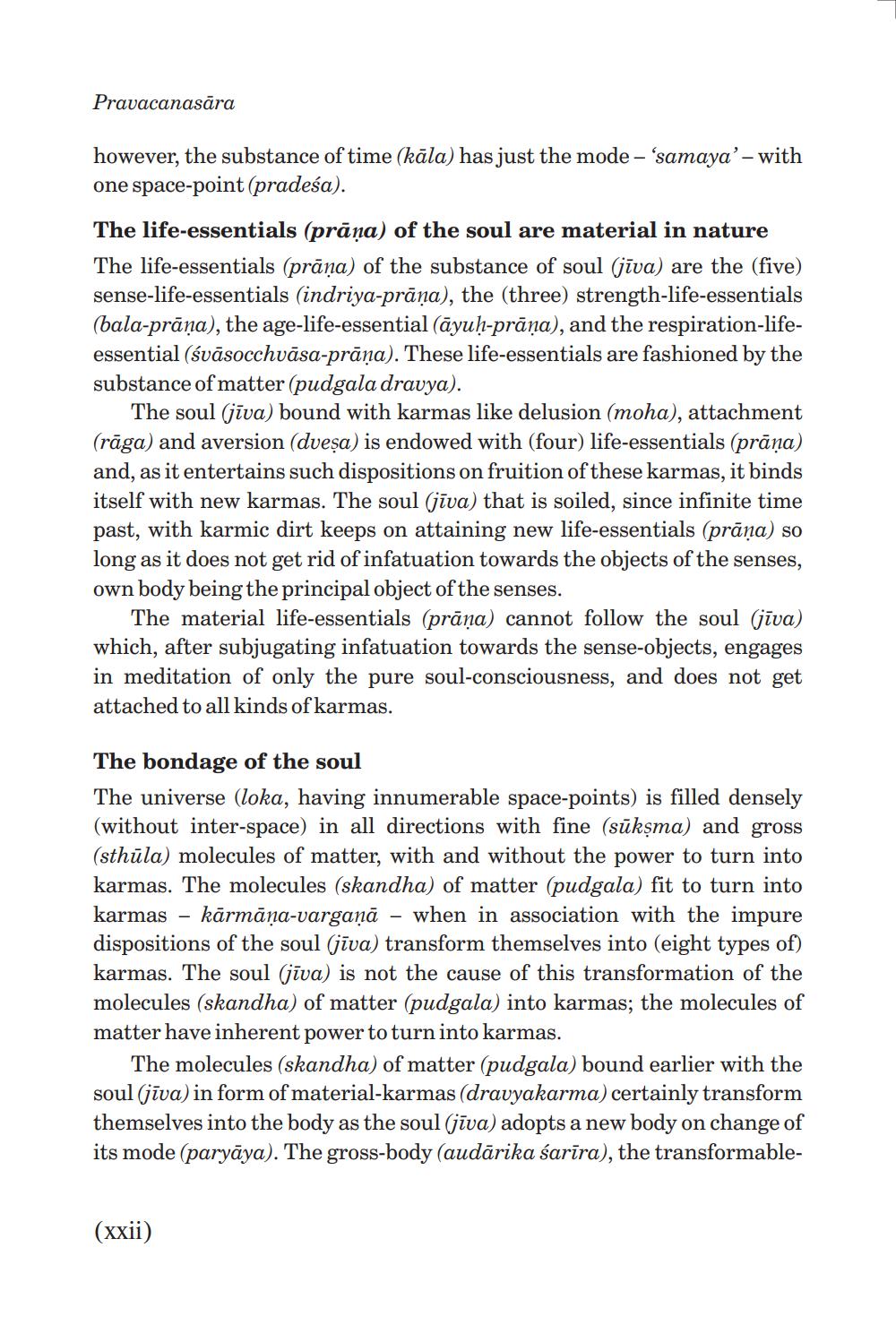________________
Pravacanasāra
however, the substance of time (kāla) has just the mode - 'samaya'- with one space-point (pradeśa).
The life-essentials (prāņa) of the soul are material in nature The life-essentials (prāņa) of the substance of soul (jīva) are the (five) sense-life-essentials (indriya-prāņa), the (three) strength-life-essentials (bala-prāņa), the age-life-essential (āyuḥ-prāņa), and the respiration-lifeessential (śvāsocchvāsa-prāņa). These life-essentials are fashioned by the substance of matter (pudgala dravya).
The soul (jīva) bound with karmas like delusion (moha), attachment (rāga) and aversion (dvesa) is endowed with (four) life-essentials (prāna) and, as it entertains such dispositions on fruition of these karmas, it binds itself with new karmas. The soul (jīva) that is soiled, since infinite time past, with karmic dirt keeps on attaining new life-essentials (prāņa) so long as it does not get rid of infatuation towards the objects of the senses, own body being the principal object of the senses.
The material life-essentials (prāņa) cannot follow the soul (jīva) which, after subjugating infatuation towards the sense-objects, engages in meditation of only the pure soul-consciousness, and does not get attached to all kinds of karmas.
The bondage of the soul The universe (loka, having innumerable space-points) is filled densely (without inter-space) in all directions with fine (sūksma) and gross (sthūla) molecules of matter, with and without the power to turn into karmas. The molecules (skandha) of matter (pudgala) fit to turn into karmas – kārmāņa-vargaņā – when in association with the impure dispositions of the soul Gīva) transform themselves into (eight types of) karmas. The soul (jīva) is not the cause of this transformation of the molecules (skandha) of matter (pudgala) into karmas; the molecules of matter have inherent power to turn into karmas.
The molecules (skandha) of matter (pudgala) bound earlier with the soul (jīva) in form of material-karmas (dravyakarma) certainly transform themselves into the body as the soul (jīva) adopts a new body on change of its mode (paryāya). The gross-body (audārika śarīra), the transformable
(xxii)




